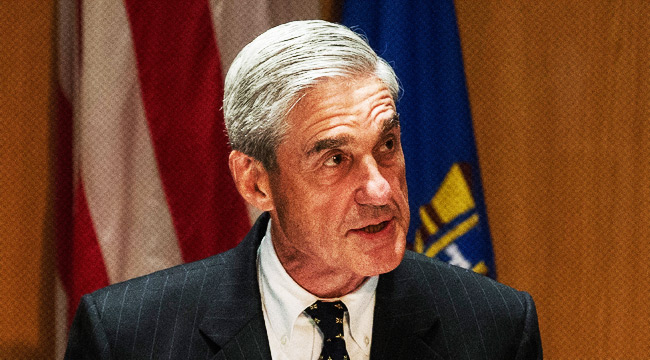
Yesterday it was revealed that Robert Mueller had been appointed special counsel by the Justice Department, in order to investigate the Trump administration’s ties to Russia and potential inappropriate efforts to cover up those ties. But if Mueller’s name sounds familiar, there’s a reason; he’s one of the most respected people in law enforcement, has stood up to Presidents, and completely changed the face of the FBI. Here are a few of the key things to know about him.
— The most important story about Robert Mueller comes from his time as director of the FBI, where he stood up to the Bush administration and won. The Justice Department had ruled that the Bush administration’s domestic wiretapping program was unconstitutional. John Ashcroft, Attorney General at the time, was ill, and the White House tried to pull an end run around Mueller and James Comey, acting Attorney General at the time, sending Bush’s counsel Alberto R. Gonzales and chief of staff Andrew Card to his bed to reauthorize the program. Mueller and Comey beat them there and told Ashcroft they’d both resign if he reauthorized the program despite its lack of Constitutionality. Ashcroft, so ill he could barely speak, refused to sign the documents.
— Robert Mueller is apolitical, nonpartisan, and willing to put himself on the line. Mueller is a dedicated public servant, and for many, the only surprise is how he came back to government service, not that he came back at all.
— He’s a Vietnam War-era Marine; holds degrees from Princeton, New York University and the University of Virginia School of Law; and has spent more than forty years as both lawman and litigator. But his government service is the most notable, starting in 1976. Mueller started working for the U.S. Attorney for the Northern District of California in San Francisco, specializing in criminal prosecutions, a job he was so good at he became head of the criminal division. In 1982, he was promoted to Assistant United States District Attorney.
— Mueller has a reputation as a guy who got results. Mueller’s job involved going after drug cartels, corrupt politicians, and terrorists, and he got results. In fact, he was so effective that after he left the office in 1988, he was gone barely a year before he returned to the Department of Justice, taking over the criminal division in 1990 and getting involved in notable cases like the prosecution of dictator Manuel Noriega, the Lockerbie terrorist attack, and the prosecution of mob boss John Gotti. Mueller quit in 1993, but returned again in 1995, taking on the job of senior litigator in the homicide division of District of Columbia United States Attorney’s Office, a notoriously thankless job even by public service standards.
— Mueller’s time at the FBI is what he’s most known for. Mueller is second only to J. Edgar Hoover as the longest-serving director of the FBI. He altered the agency in the wake of September 11th, from a police force to a domestic counterterrorism and counterespionage force respected in the international community. FBI directors normally serve for ten year terms; Mueller was asked to stay by Obama for another two years.
— Since his time at the FBI, Mueller has served as a litigator in private practice, investigating the video of Ray Rice’s domestic violence, dealing with Volkswagen’s diesel emissions scandal, and handling other high profile consumer law cases. As for what we can expect going forward, Mueller is a notoriously thorough, careful, and precise investigator, completely apathetic to politics and uninterested in partisan stands. Mueller’s job is to figure out what happened and present that data to the government, and his career indicates he’s the best man for the job.
